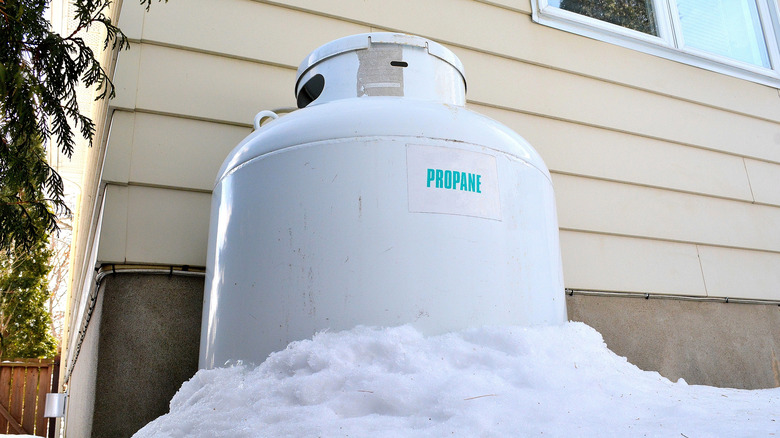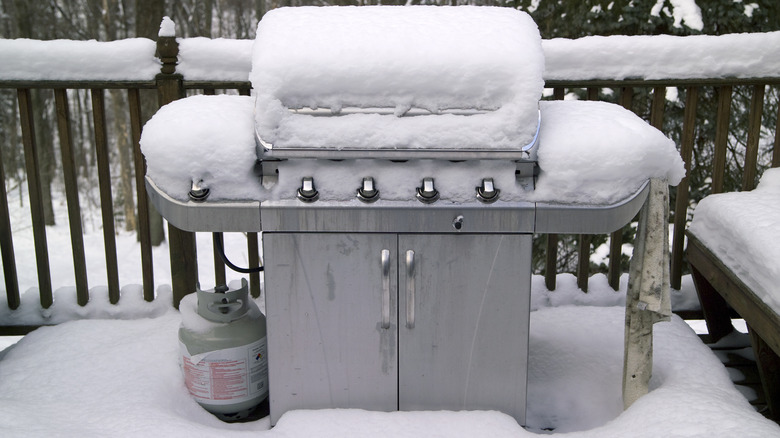Debunking A Common Myth About Storing Propane Tanks In The Winter
We may receive a commission on purchases made from links.
Propane has a host of uses, from providing heat, hot water, and cooking at home to powering generators, construction equipment, and forklift trucks. Commercial tanks can hold thousands of gallons, and at the other end of the scale, there are 20-pound versions used in patio heaters and barbecues. For safety reasons, you should never store propane tanks indoors. If it gets too warm, there's a risk that the gas might leak. But, on the other hand, some people believe a propane tank could explode if you leave it outdoors in the winter.
Fortunately, while there are some common mistakes you should avoid with propane tanks at home, there is no danger of them detonating when it gets cold. In fact, you could argue that very cold propane tanks are actually safer. Propane will turn to liquid at minus 44 degrees Fahrenheit. In that state, it won't give off vapor, rendering it unable to burn at all.
While low temperatures won't cause propane tanks to explode, they can cause issues. Even before it becomes a liquid, the gas will start to shrink. So for instance, if you like to cook out during the winter, and you think you know how to figure out how many grilling hours you'll get, you'll actually get fewer than you thought. Indeed, if the tank is low, you may have trouble getting the barbecue to light at all. A frozen regulator could be another problem, preventing gas from reaching appliances.
The right way to store propane tanks in winter
Make sure your propane tanks are upright and on a solid surface so there's no risk of them toppling over. It's fine to put them somewhere where winter sun can get at them, as long as it's not a spot that gets really hot in the summer (propane becomes unstable above 120 degrees Fahrenheit). Although propane tanks have a sturdy exterior, allowing ice and snow to build up on them during the winter could eventually lead to rust. If there's a danger of that happening, they need some form of protection. You can buy propane tank covers, similar to this Propane Tank Cover from Amazon for 20-pound tanks — although covering them with a plastic tarp will do the job just fine. This should also help prevent your regulator from freezing.
If you do like to spend time out on the patio on a winter's evening, or you want to light up the barbecue, make sure your propane tank isn't low on gas. There's a useful TikTok hack that can easily tell you how full they are. Note that, however cold it gets, you should never be tempted to try to warm a propane tank with any kind of heating device. That could be disastrous.

